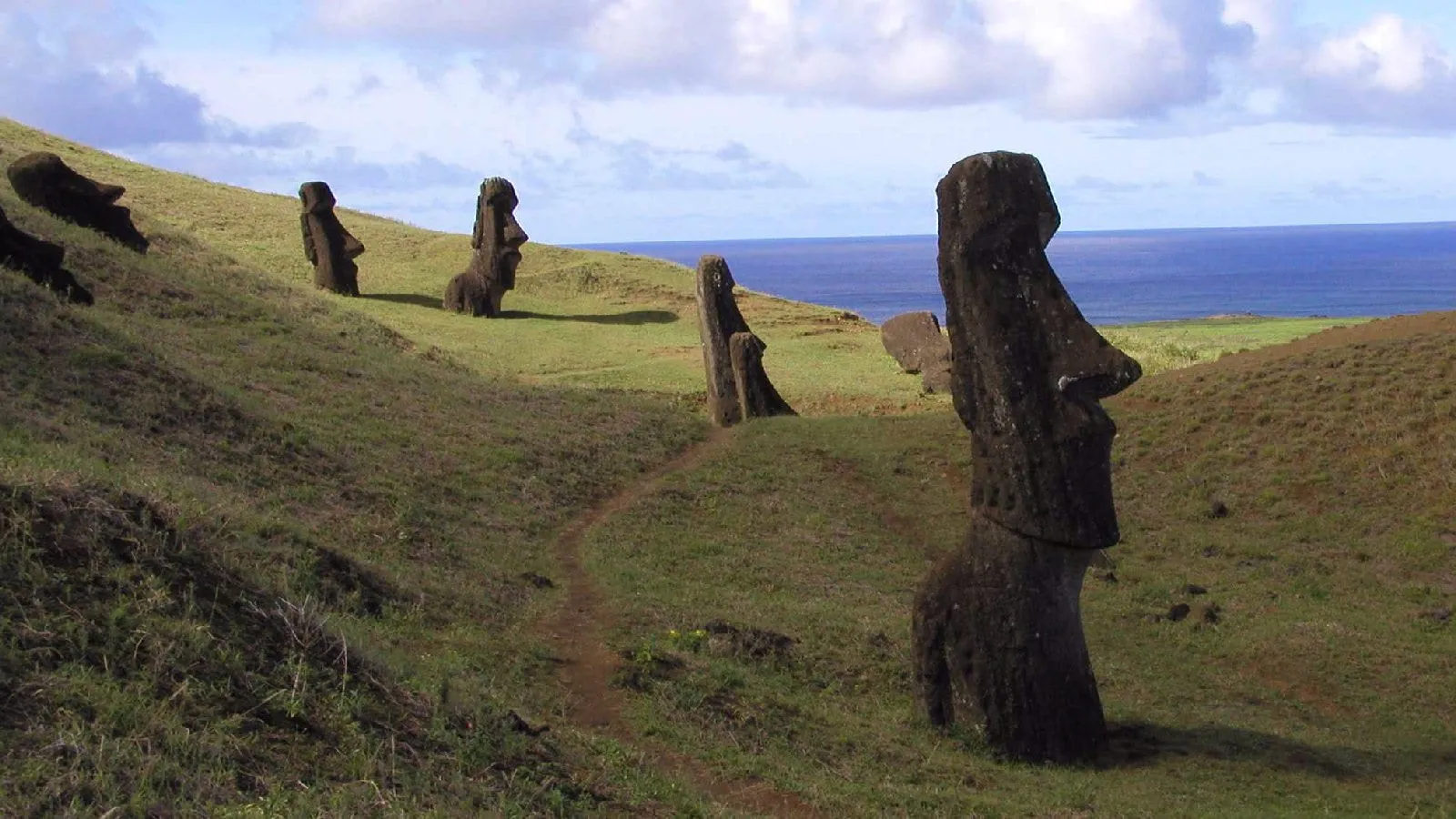Easter Island has long been used as a parable for environmental destruction: a once-mighty civilization brought low by its wanton overuse of natural resources. The islanders cut down all their trees for farming and silly stone heads, so the story goes, and reduced the paradise of Rapa Nui to a windswept grassland. However, a new theory about the collapse of Easter Island challenges this traditional assumption. It takes the blame away from humans and puts it on rats.
Two anthropologists from the University of Hawaii, Terry Hunt and Carl Lipo, have posited that it was the unintentional introduction of rats to the island that lead to the disappearance of the island's tree cover, along with all of its endemic bird and plant life. A few rat stowaways on human canoes found themselves in a predator-free paradise filled with their favorite food: tree seeds and tree seedlings. After humans cleared the forest for agriculture, the rats prevented any new trees from taking root.
How did humans manage to survive in this denuded landscape? According to Hunt and Lipo, their diet became a lot more rat-centric. With no birds remaining to hunt, and no trees big enough to make canoes, the only meat left was of the squeaking variety. On top of this, the island's nutrient-poor soil presented a challenge for farming. The islanders learned to improve the soil by breaking up rocks and scattering them in their fields. The rocks released just enough minerals into the soil to support crops. When Europeans happened upon the island, the people were living on rats, fruits and vegetables, and getting around with a few leaky driftwood canoes – but they were actually well-fed.
Hunt and Lipo present this as an unexpected success story. Humans (inadvertently) created a problem, and solved it with a mixture of adaptability and ingenuity. But there's something depressing about a culture reduced to a marginal existence and still building monuments to itself after the total collapse of a vibrant, diverse ecosystem. Shades of the Anthropocene?
Via NPR. Photo via Enjoy Your Holiday.


Comments (0)
Share your thoughts and join the technology debate!
No comments yet
Be the first to share your thoughts!